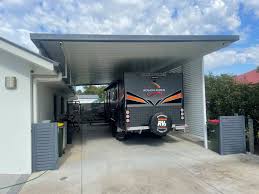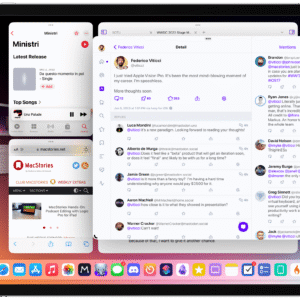1. Where It All Started
Machining’s been around longer than most of our grandparents. The old-school lathes, the greasy floors, the smell of coolant — that’s where it began. Simple machines making simple parts. But things changed. Fast. The industry got smarter, leaner, faster. And that’s where Swiss-style CNC machining stepped in and refused to leave. Now, if you walk into any serious turned parts manufacturer, chances are, you’ll hear the steady hum of Swiss machines in the background. Not because it’s trendy. Because it works. Because it’s damn reliable.
2. What Makes Swiss Machining Different
Let’s not sugarcoat this — not all machining is built the same. Traditional lathes are fine, sure. They spin metal, cut chips, get the job done. But Swiss-style CNC machining? It’s precision on another level. Here’s the big deal: the material moves while the tools stay fixed. That sliding headstock setup means parts don’t flex or vibrate. You can machine crazy thin parts, super tight tolerances, and maintain accuracy over long runs. We’re talking micron-level consistency — the kind of precision that aerospace and medical industries can’t live without. It’s not cheap gear. These machines cost serious money. But the output? Worth every penny.3. Turned Parts Manufacturing — The Unsung Hero
Here’s something most folks outside the trade don’t get: turned parts are everywhere. You’re surrounded by them. Inside your phone, your car, your watch. The knobs, pins, fittings, connectors — all turned parts. And behind every one of them is a turned parts manufacturer who knows what they’re doing. It’s not just about cutting metal. It’s about discipline, patience, and craftsmanship. You don’t wake up one day and decide, “Yeah, I’ll be a turned parts machinist.” You earn that over time, part by part, tolerance by tolerance.4. Swiss Machining and the Art of Perfection
People throw the word “precision” around like it’s seasoning. But in Swiss-style CNC machining, it’s religion. A few microns off, and your part’s junk. That’s why every serious manufacturer invests in inspection — laser scanners, vision systems, digital micrometers. Swiss machining isn’t forgiving. It doesn’t care if your material batch had a weird grain. Or if the operator had a rough morning. Either it’s right, or it’s scrap. That’s what separates real precision shops from hobbyists. At Allied Technologies International, Inc, that’s the line in the sand. Every piece that leaves their shop? Checked, rechecked, and signed off. No excuses.5. Why Industries Swear by Swiss
Let’s list it out — not neatly, just real-world truth.- Medical: surgical screws, bone plates, catheter components. Zero tolerance for defects.
- Aerospace: engine fittings, fuel connectors. Weight and accuracy matter.
- Electronics: tiny pins, connectors. Parts you can barely hold between two fingers.
- Defense: rugged hardware that must survive heat, vibration, and pressure.
6. Materials That Make the Cut
Not all metals behave. Some chew up tools. Some warp when you cut them. Swiss-style machining tackles that head-on. From stainless steel, titanium, and aluminum, to brass and medical-grade polymers, the process adapts. It’s a different kind of control — you fine-tune the feed rates, spindle speeds, coolant pressure. A small change in parameters can make or break a production run. That’s why experience matters more than fancy software. Machines don’t run themselves, not really. People do. Skilled machinists. And those are getting harder to find.7. Automation Without Losing the Human Touch
Swiss CNC machines are beasts of automation. You load a bar, program the job, and watch it run for hours. Lights out machining, they call it. It’s efficient, sure. But let’s be honest — automation isn’t everything. The real art still lives in setup, in problem-solving. When a tool wears weird or a dimension drifts. That’s when an experienced machinist steps in. They listen to the sound, feel the vibration, tweak the offsets. Machines can’t sense intuition. People can. That’s the magic blend Allied Technologies International, Inc brings — advanced automation with old-school craftsmanship.8. From Prototype to Production
Every big order starts small. A sketch, a CAD model, maybe even a napkin drawing. Then it’s on the machinist’s desk. Prototyping is where Swiss machining really shines. Quick turnarounds, fast changes, high precision. Once the prototype’s locked in, scaling up is seamless. Same setups, same code, just repeat. Swiss-style machines are built for long, uninterrupted production runs. That’s how turned parts manufacturers keep consistency across thousands of parts — first to last, identical. No drama, no surprises.9. Quality Control Isn’t a Department — It’s a Habit
Some shops treat QC like paperwork. Run the job, hand off a few samples, hope for the best. That’s how you lose customers. In Swiss machining, quality control is woven into every step. You don’t just check parts at the end. You check them mid-run, during setup, after every tool change. Every operator becomes a quality inspector. That’s what keeps tolerances tight and customers loyal. Allied Technologies International, Inc doesn’t chase certifications just for the wall. They live them.10. The Economics of Precision
Let’s talk money. Swiss-style CNC machining isn’t cheap upfront. Machine costs, skilled labor, inspection tools — they add up. But here’s the truth most procurement folks learn eventually: precision saves money in the long run. Fewer rejections, faster assembly, zero returns. Parts fit right the first time. Downtime disappears. You can’t put a price tag on reliability. So, while the quote might look higher at first, the lifetime value crushes any “budget” alternative. If your product depends on precision — it’s not a cost, it’s an investment.11. The Future of Turned Parts Manufacturing
The next decade’s going to be wild. AI-assisted programming, digital twins, smart tooling. The buzzwords will keep coming. But one thing won’t change: precision still matters. Turned parts manufacturers who survive will be the ones that adapt fast but don’t forget the basics. Good machines, good people, and pride in the work. You can’t automate pride. You can’t program dedication. Swiss-style CNC machining is only getting sharper — faster spindles, better coolant systems, multi-axis control. But without skilled hands guiding it, it’s just hardware.
12. Why Allied Technologies International, Inc Leads the Way
Let’s cut to it — there are plenty of machine shops out there. Some good, some not so much. But Allied Technologies International, Inc has built its name on consistency. Not just precision, but reliability. They specialize in Swiss-style CNC machining and turned parts manufacturing for demanding industries. Their parts go into medical devices, aerospace systems, and defense tech where failure isn’t an option. Every part that leaves their shop tells a story — of craftsmanship, patience, and pride. And if you need parts that meet print, hold tight tolerances, and ship on time, well, that’s where you start. Visit Allied Technologies International, Inc today — and see what precision really looks like.FAQs: Swiss Machining and Turned Parts Manufacturing
Q1. What is Swiss-style CNC machining?
Swiss-style CNC machining is a precision turning process where the workpiece moves through a sliding headstock, allowing ultra-tight tolerances and long, slender parts. It’s ideal for industries needing high accuracy and repeatability.Q2. Why choose a turned parts manufacturer?
Because every reliable product needs dependable components. Turned parts manufacturers specialize in precision-made pieces — from pins and shafts to connectors — that form the backbone of complex assemblies.Q3. Which industries benefit from Swiss machining?
Aerospace, medical, electronics, automotive, and defense sectors rely heavily on Swiss machining for parts where failure isn’t an option.Q4. What materials can be used in Swiss machining?
Common materials include stainless steel, titanium, aluminum, brass, copper, and engineering plastics like PEEK and Delrin. Each requires specific cutting parameters and tool geometry for best results.Q5. What makes Allied Technologies International, Inc different?
They combine advanced Swiss-style CNC technology with experienced machinists who know the craft inside out. Their focus is on delivering precision parts that meet specifications — every time.Final Thought: Swiss-style CNC machining isn’t hype. It’s the heartbeat of modern manufacturing — precise, repeatable, and efficient. And when you pair that with a turned parts manufacturer that actually cares, you get reliability you can measure in microns. So, if precision is what your business runs on, start with Allied Technologies International, Inc — where quality still means something.





